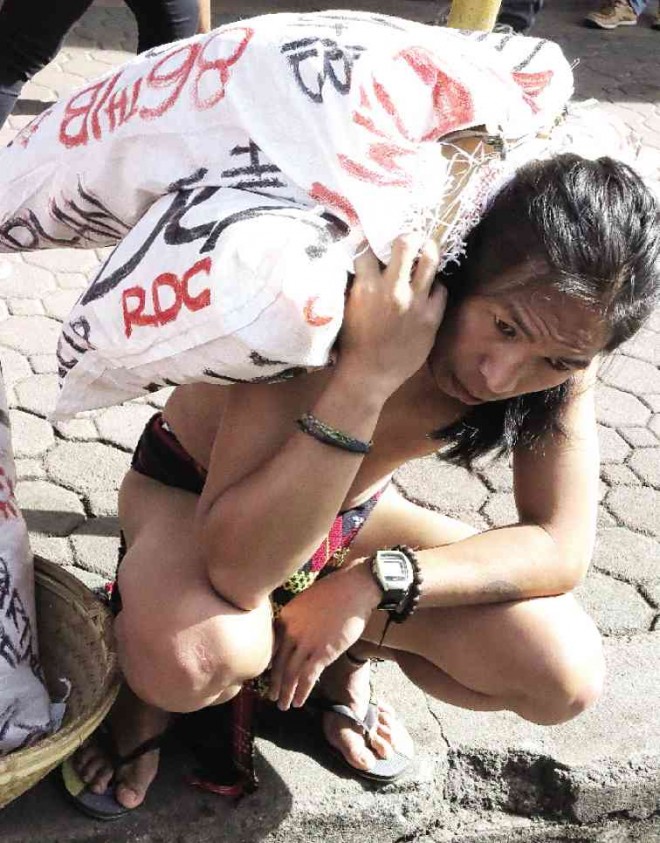
PROTESTING alleged civilian deaths in military operations, upland community folk join activists of Cordillera Peoples Alliance in an Oct. 20 march to a military camp overseen by the Philippine Military Academy. EV ESPIRITU/INQUIRER NORTHERN LUZON
BAGUIO CITY—Activists stormed the Philippine Military Academy’s (PMA) Camp Allen here on Monday to dramatize outrage at the death of civilians during combat operations in the Cordillera region.
At least 100 people, among them elders from the provinces Ifugao, Abra and Mountain Province and members of Cordillera Peoples Alliance (CPA), gathered at downtown Session Road and marched to the PMA-administered military camp near Baguio City Hall, carrying streamers and placards condemning the military’s presence in their provinces.
Many of the streamers refer to the death of Fidela Salvador, a civil engineer, during a Sept. 5 and 6 clash between rebels and the Philippine Army’s 41st Infantry Battalion in Lacub town in Abra.
The Armed Forces of the Philippines claimed that Salvador’s remains were recovered alongside the bodies of rebels killed in action, which United Church of Christ in the Philippines (UCCP) has disputed, said UCCP pastor Joseph Agpaoa, who joined the march.
Salvador was in Abra to inspect the projects of Cordillera Disaster Response and Development Services, according to a fact-finding team sent by CPA and Cordillera Human Rights Alliance in September.
The team said Salvador and Lacub resident Noel Viste were civilians killed in the crossfire.
The marchers also questioned the death of a rebel, Arnold Jaramillo, whose body bore injuries that led his family to believe that he was tortured before he was killed.
Citing the autopsy report from the National Bureau of Investigation, Jaramillo’s family had requested Speaker Feliciano Belmonte Jr. and Bayan Muna to determine whether the military followed international rules of engagement in clashes with rebels in Lacub.
In a Sept. 28 statement to the Inquirer, the New People’s Army’s Chadli Molintas Command, which operates in the Ilocos and Cordillera regions, confirmed that Salvador was not an NPA rebel.
The marchers also trooped to various government agencies like the Department of Environment and Natural Resources, the Department of Agriculture and the National Commission on Indigenous Peoples to file community petitions and to challenge government projects that affect their communities. Vincent Cabreza, Inquirer Northern Luzon